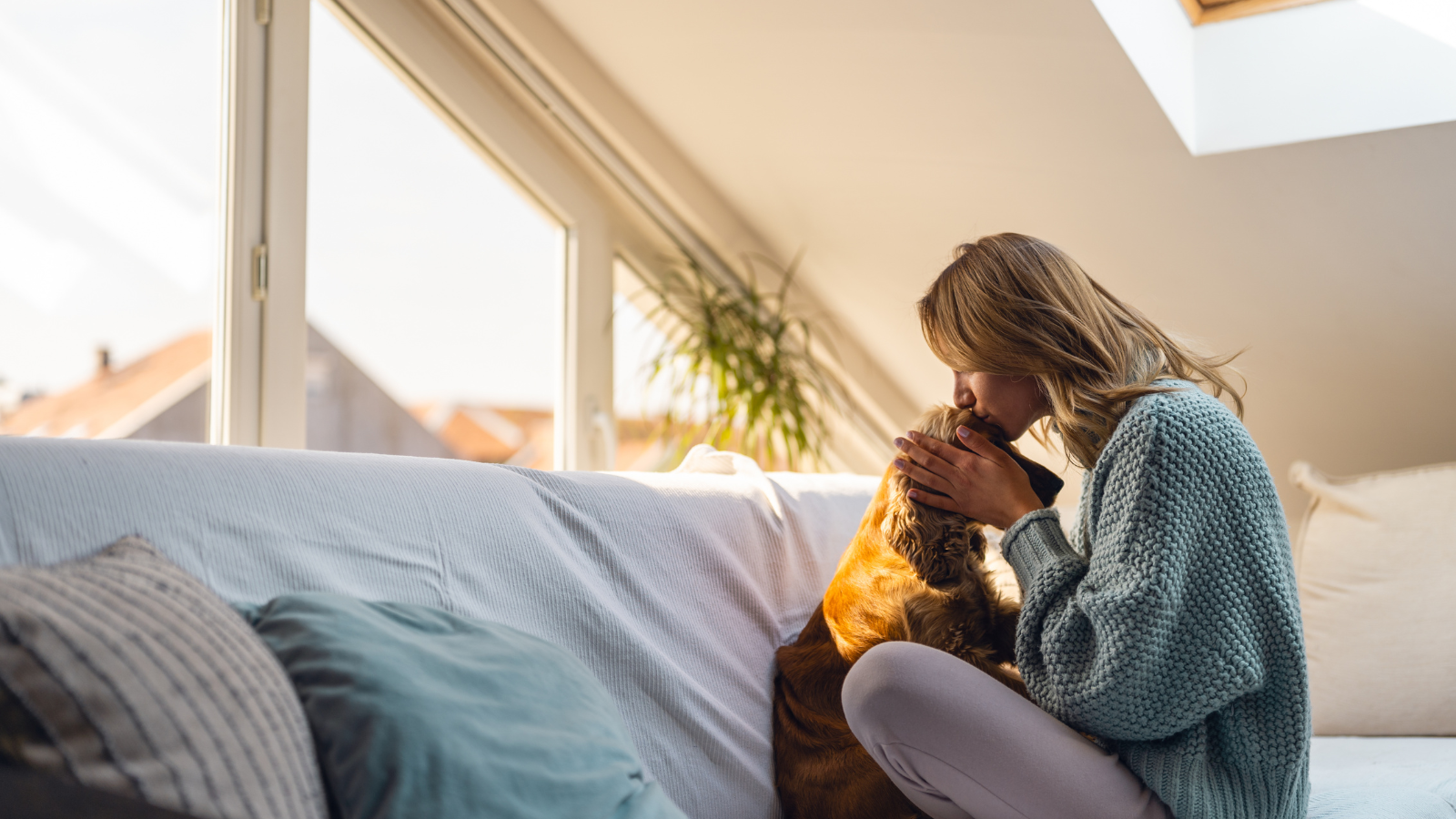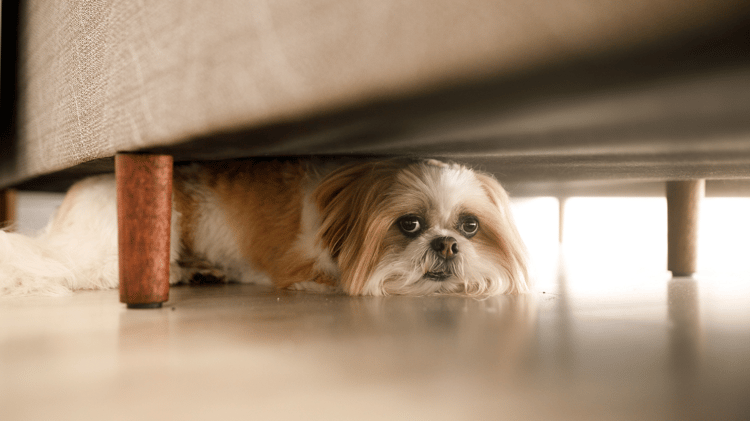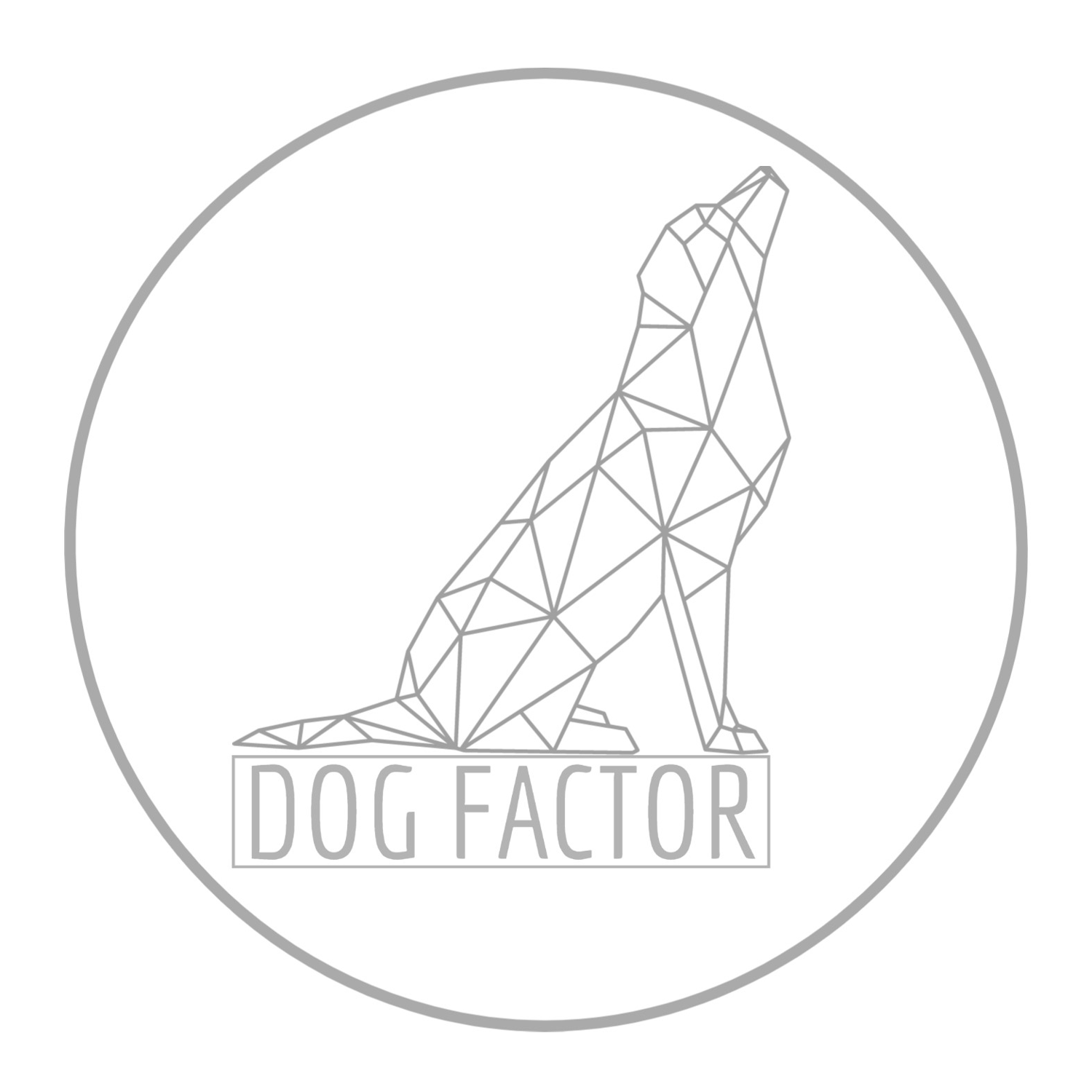
Behavioural modification
Behavioural modification sessions are indicated for dogs that exhibit behaviours such as barking, growling, lunging or biting.
Dogs that can't deal with frustration, that have stress, fear or are anxious, and dogs that don't know how to be alone at home.
In these individual and personalized sessions, adapted to the family and the individual, I will help the guardian to understand the behaviour that your dog presents, in addition to transmitting the knowledge and techniques necessary for the best evolution of the dog.

aggressive behaviour
- Impulsive-reactive ("reactivity")
- Instrumental
- Interspecific and Intraspecific
- Related to resource guarding

home alone
- Separation Anxiety
- Lack of Learning
- Under-Stimulation

Fear | Phobias | Stress | Anxiety
- General restlessness
- Repetitive or compulsive behaviours
- Decontextualized panthing
- Excessive barking
- Excessive drooling
- Avoiding social interactions
- Whining or tremors

Aggressive behaviour
There are no aggressive dogs, but dogs that can exhibit aggressive behaviours in certain contexts and learning.
Having a dog that presents this type of behaviour can be emotionally draining and the guardian does not have to deal with this situation alone!
My job is precisely to help you understand and develop a relationship with your dog so that you can better enjoy the moments together!
REACTIVE-IMPULSIVE AGGRESSION
Commonly called reactivity or leash reactivity.
It is an uncontrolled and inappropriate aggressive behaviour elicited by lack of emotional control.
INSTRUMENTAL AGGRESSION
Controlled aggressive behaviour, with a purpose/objective.
INTERSPECIFIC AGGRESSION
Aggressive behaviour directed at other species.
For example, aimed at humans.
INTRASPECIFIC AGGRESSION
Aggressive behaviour directed at members of the same species, dogs.
AGGRESSION RELATED TO RESOURCE GUARDING
Related to aggressive behaviours in the presence of something valuable to the dog, such as objects, people and places.

PROBLEMS WITH BEING home alone
There may be more than one cause for your dog to have behavioural problems when home alone.
Separation anxiety is a serious problem that should not be underestimated.
Behavioural and veterinary professional help should work together in the vast majority of cases.
LACK OF LEARNING
Not knowing how to deal with being alone at home.
Common cause in puppies and young adults.
UNDER-STIMULATION
Lack of physical and mental stimulation is the most common cause for dogs that exhibit destructive behaviours.
FEAR AND ANXIETY
Dogs that really suffer from separation anxiety may have different symptoms of anxiousness, such as howling, defecating or urinating.

FEAR | PHOBIAS | STRESS | ANXIETY
General restlessness, repetitive or compulsive behaviours, decontextualized panthing, whining, excessive barking, shaking, excessive drooling, avoiding social interactions, hiding or aggressive behaviours are some examples of behaviours often associated with stress and anxiety.
If you notice that your dog is more anxious or afraid of an object or situation than usual, I can help minimize and improve the daily life of your four-legged friend!
WE OFTEN USE THE TERMS "FEAR" AND "ANXIETY" INTERCHANGEABLY... BUT THEY DON'T MEAN THE SAME THING.
FEAR
It is related to specific escape or 'freezing' behaviours.
ANXIETY
Anticipation of the unknown (or future threats) from the dog's perspective.
Separation anxiety, generalized, environmental or social anxiety are some examples.
PHOBIA
Excessive and persistent fear of a specific stimulus.
Phobia to sounds (e.g. thunderstorm or fireworks), to unknown people and situational are some examples.
STRESS
Stress is an altered state of homeostasis that can be caused by physical or emotional factors that trigger behavioural, endocrine and immunological psychological effects (and responses) to deal with it.
These answers vary between individuals, depending on their experience, breed, age, among other factors.
Acute or chronic stress has an impact on both the behaviour and health of your dog in the long term.

BOOKING & METHODOLOGY

INDIVIDUAL FOLLOW-UP
Online or at home follow-up - Oeiras, Cascais and the outskirts of Sintra.
Sessions in Portuguese and English.
Each dog is individual and has its own personality, for this reason each behavioural modification and education plan is personalized and adapted to the individual needs of each dog and family.
Summer sale now on
⋆
Summer sale now on
⋆

INITIAL ASSESSMENT
In the initial assessment session (both in behavioural therapies and initial and basic social education) will be addressed the history, learning and behaviour(s) in question, all family and environmental interaction, what are the objectives of the guardian, recommendations on daily management, in addition to fundamental exercises to teach.
FOLLOW-UP SESSIONS
In the follow-up sessions, we will talk about the evolution of the behaviour in question and new exercises to be applied and/or taught.
In addition to the necessary demonstrations, I will guide the guardian through the exercises and provide the necessary knowledge to act with confidence when alone in everyday life.
The follow-up session is usually scheduled about 2 to 3 weeks after the initial assessment session (according to the dog's needs), to give the guardian and his dog time to adapt to the recommendations and new education/modification behavioural plan before we proceed with it.
Individual follow-up sessions can be scheduled (usually necessary) after scheduling the initial package to support and continue the behavioural modification plan.
Summer sale now on
⋆
Summer sale now on
⋆

ONLINE FOLLOW-UP
Online follow-up can be very effective, not always group classes or receiving a "strange" at home is the best option for certain dogs.
This type of follow-up and learning gives the guardian and his dog time and space to learn and evolve in their own time.
There are other methods to evaluate and modify your dog's behaviour without being in person and successfully!
VETERINARY ASSESSMENT
Many health conditions (pain, hormonal or analytical disorders, among others) can contribute to behavioural problems or unwanted behaviours.
These conditions need to be evaluated by the Assistant Veterinarian before starting the behavioural modification sessions.
The contact between the Trainer and Veterinarian is crucial for the evolution of the behaviour in question.
SCHEDULING OF NEW CLIENTS - ASSESSMENT AND FOLLOW-UP SESSIONS - FROM JUNE 26TH
If you have any questions, please send an email with your questions so I can help you until the assessment session
VACATIONS FROM JUNE 01TH UNTIL JUNE 19TH

BEHAVIOURAL THERAPIES PACKAGE
ONLINE: 125€ | AT HOME: 140€
INCLUDES:
FUNCTIONAL ASSESSMENT
- Duration of 02h00.
- Prior filling of a brief form by the guardian before the assessment session.
- Detailed analysis of the behaviours in question, their history, family, environment, health and well-being, daily routines, social interactions and other relevant contexts.
- A behavioural modification and personalized environmental management plan will be established.
- Exercises and recommendations to be applied immediately to improve the behaviour in question will be addressed.
- An individualized "Procedures Guide and Daily Routines" will be provided, among other resources.
- Support via email and/or WhatsApp for 12 weeks, after the first session.
- Access to a private sharing community.
FOLLOW-UP SESSION
- 1 follow-up session lasting 01h30.
- After each session, a summary of the recommendations/exercises to be applied until the next session will be prepared.
OBSERVATIONS
- These sessions are aimed at dogs that bark, growl, lunge or bite. Dogs that can't deal with frustration, stress, phobias, fear or are anxious. Dogs that don't know how to be alone at home.
- Depending on the functional assessment, veterinary consultation may be recommended before continuing with the follow-up sessions.
- A pack of 3 sessions or individual follow-up session can be added when necessary.

book a session!
Click to access the assessment session scheduling form
Frequently asked questions
-
It is not mandatory to make the package.
The assessment session can be done without the obligation of the package or follow-up sessions.
You just won't have access to the advantages described in the package, except for the "Daily Routine Procedures Guide".
-
Yes.
We can add individual sessions when necessary, or pack of 3 sessions in behavioural therapies, or 4 sessions in initial, basic and continuing education.
-
Behavioural Therapies:
- Individual Session (01h30) - Online: 47€ | at home: 55€
- Pack 3 Sessions (01h00) - Online: 125€ | at home: 135€
Basic and Continuing Education:
- Individual Session (01h00) - Online: 37€ | at home: 42€
- Pack 4 Sessions (01h00) - Online: 140€ | at home: 150€
-
The scheduling of follow-up sessions, both in behavioural therapies and in initial, basic and continuing education, should be scheduled up to 2 months after their acquisition.
-
Home sessions are held in the area of Oeiras, Cascais and periphery (Sintra).
The home assessment session, normally is held at the guardian's residence (or at some agreed place if it comes outside the area described above).
Follow-up sessions can be held in different locations, adapted to the needs of each individual.
-
The training techniques used are based on scientific methods and natural language, not using violent and coercive methods. Aggressive handling, physical strength and equipment considered aversive for the dog will not be used.
-
Online assessment and follow-up can be very effective and in many cases necessary.
There are several ways to evaluate and change your dog's behaviour without seeing each other in person, with the help of videos and more personalized help.

